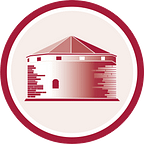Sputnik V: From Space Race to Inoculation Competition
Kate Billay, Royal Military College of Canada
On Feb 2, 2021 The Lancet medical journal confirmed the efficacy of Russia’s Sputnik V vaccine against Covid-19 as 91.6% after the first dose — making it a major technology and innovation breakthrough for the Russian Federation. However, President Putin is looking farther afield than the laboratory, and is working with many developing and strategically important states to provide them with vaccines. As of March 12, 2021, 51 countries approved the use of Sputnik V, and many have either procured doses from Russia or arranged contracts to produce the vaccine locally at half the cost of the vaccines of western-made competitors. While vaccine nationalism should certainly be a concern for western states seeking to protect their populations, the geopolitical implications of Russia’s vaccine success should not be underestimated.
Chaim Shinar argues that President Putin has made it clear that he is seeking to return Russia to its ‘former glory’ as an economically and militarily competitive superpower on the global stage. While the West has been hoarding and upholding the high costs of western-made vaccines, Russia has taken its technological breakthrough as an opportunity to undercut precarious western-developing world relations. By widely sharing Sputnik V, Russia is building a stepping stone to curry favour with states constantly frustrated by post-colonial power structures limiting their economic advancement. This includes several countries in South America, Iran, and Hungary — all of which are facing significant criticism from western allied powers regarding their policies. With the vaccine, Russia is now in a position to open wider diplomatic doors with these countries and regions, effortlessly leading in a ‘hearts and minds’ campaign against the West.
Despite Putin’s obvious intentions, western allied powers have been preoccupied with supplying vaccines to their own populations at the expense of noticing the strategic international challenges vaccine nationalism could present. Should Putin’s vaccine distribution plan successfully promote the re-expansion of the former Soviet sphere of influence, Russia could once again become a competitive global superpower. With appreciative state governments around the developing world, Russia could negatively influence Western economic and defence activities — particularly in regions such as the Middle East and Africa where Russia has been trying to gain additional strategic military footholds. However, not all western countries have been blinded by the race to end Covid-19 — France in particular has suggested all states donate 5% of their current vaccine shipments to developing countries in order to curtail Russia’s vaccine influence campaign. Nevertheless, even if this minimal effort was successful it would pale in comparison to the opportunity Sputnik V offers these countries; a chance to independently procure significant amounts of good quality vaccines at a reasonable price. So, how should Canada respond?
What was once a space race between the Soviet Union and the West should now be seen as an inoculation competition. Vaccines are being used alongside preferential trade agreements and strategic alignments as tools of foreign policy, and should be treated as such by Western allied powers. This includes scrapping Canada’s COVAX allocations and ensuring that sizeable portions of current vaccine supplies are re-routed towards strategically important developing states to counter Sputnik V shipments. Additionally, Canada’s present position to donate all leftovers is a policy of too little, too late for countries in dire need of immediate immunization campaigns. Not only will these policies slow global vaccination rates and prolong the economic depression, but they also alienate countries that Canada relies on for security and defence objectives.
Kate Billay is the Managing Editor of the Contact Report and graduate student at the Royal Military College of Canada pursuing a Master of Public Administration. She received her undergraduate degree from the University of Ottawa in International Studies and Modern Languages.
